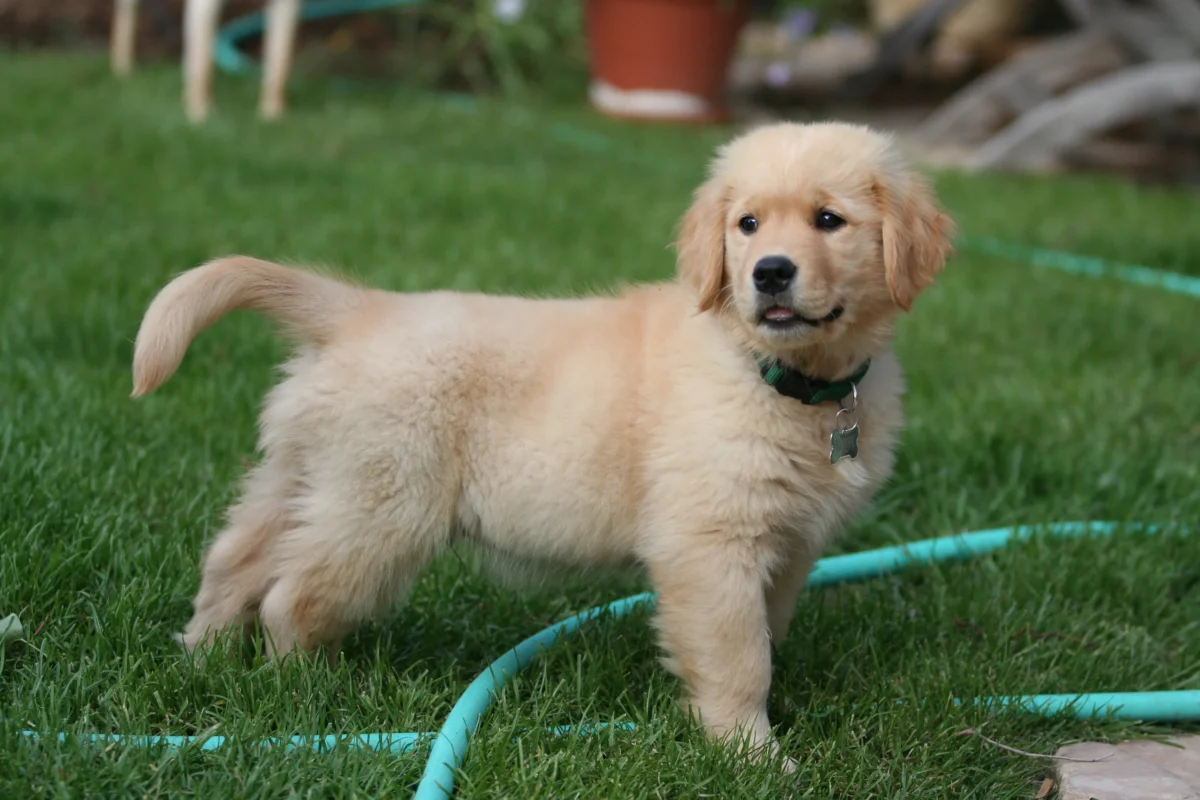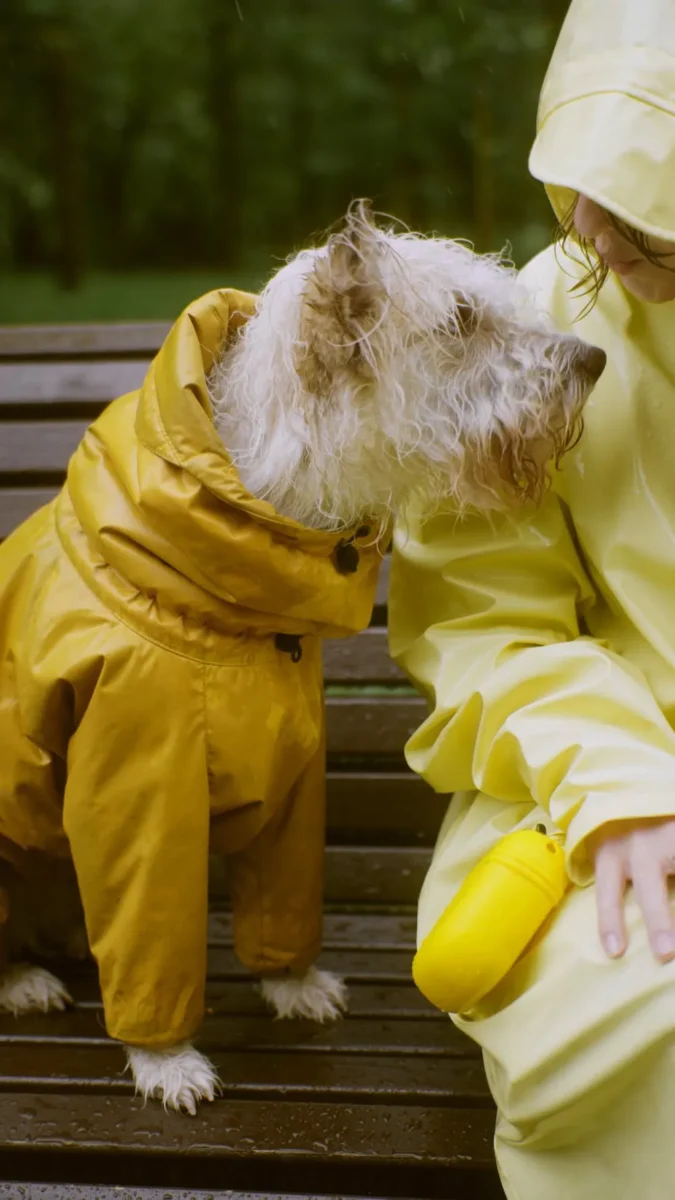For anyone considering adding a Golden Retriever to their household that also has resident cats, the question of whether the Golden will get along with the felines is an important consideration. The breed is well known for its loving and loyal nature along with its outgoing personality, which means, with proper training, the two breeds should be compatible.
About the Golden Retriever
The Golden Retriever has a long history, which began in the mid-1800s when the breed was developed by Lord Tweedmouth at his estate in the Scottish Highlands, according to information from the American Kennel Club.
For 50 years, the breeding was controlled and refined until the Golden Retriever we know today was developed. The beautiful breed with its magnetic personality made its first appearance in 1908 at a dog show in Britain and arrived in the United States during the same period.
Golden Retriever Characteristics
Golden Retrievers get high marks in many of the standard trait characteristic categories when considering including them in your family. These include the following:
- Friendliness
- High energy level
- Playful
- Compatible with cats
- Good with children
- Get along well with other dogs
- A good choice for those choosing to become pet parents for the first time
With their playful nature and high energy level, Golden Retrievers are well-suited for busy home environments where they receive plenty of attention and have access to a lot of interaction.
Training a Golden Retriever
While Golden Retrievers accept felines as friends, they must be trained not to chase the cat, especially if you are bringing a puppy into the household. Golden puppies start at an early age to enjoy running and chasing things, and that includes resident cats.
Whether the feline is an adult, which may take a stand and slap the inquisitive pup on the nose, or a kitten that the puppy could easily injure, or worse, it’s important the puppy be trained from day one that chasing a cat or kitten is not acceptable behavior.
There are several methods to use to deter a puppy from chasing the kitty. Each relies on the pet parent to be in control of their puppy’s attention, providing rewards when appropriate, redirecting their attention from the cat, and using stern commands to prevent chasing.
Pet parents must also be prepared to put the pup into “time out” if it fails to respond to their voice commands and continue to chase the kitty. To do this lets the Golden Retriever know there is a consequence of failing to respond to the command, such as being placed in a dog crate or being put into a room with the door shut and being left alone for a short period.
One of the most important things for the pet parent to do is maintain consistency in training the dog not to chase the cat. The reason is the longer the dog is allowed to chase, the more difficult it will be to correct and eliminate the behavior.
A Golden Retrievers’ attitude and energy level support their “let’s play” attitude, and a resident cat or kitten is perceived as a playtime distraction, much like their toys. While the dog is not intentionally being aggressive in a negative way towards the feline, the cat will perceive the pup as a threat and react accordingly.
Distracting the puppy using a voice command whenever it focuses on the feline and rewarding it for listening and following your command to “stop” or “no” or “leave it”, is positive reinforcement. When the pup responds to the pet parent’s repeated commands, it should eventually lead to the puppy understanding the kitty is not to be chased.
Keep in mind that all dogs, even those of the same breed, are not the same. Even though Golden Retrievers have a friendly temperament, each has its own personality. This means what works as a training method for one breed may not work for another.
Also, keep in mind that if a cat or kitten is being added to the family where an older Golden Retriever already resides, the same type of training is necessary to help the cat be comfortable and not scared inside the home and to prevent injury to either the dog or cat.

« Is Coffee Bad for Dogs?
Why Do Golden Retrievers Want to Eat Everything? »
For tips, methods, and techniques on how to train Golden Retrievers to be good with cats, visit reliable sources, such as Purina, the American Kennel Club (AKC), and Petfinder.
Some of the tips and methods shared by pet parents as well as pet professionals include the following:
- Crating the cat or kitten during the retriever’s training period.
- The consistent use of treats for rewarding good behavior.
- The consistent use of voice commands.
- Using a leash or lead to support control of the canine during the training period.
- During the initial training period, ensure the cat is not reachable so it does not distract and/or trigger the dog’s natural instinct to chase it while you are reinforcing voice commands.
- At some point during training, the cat(s) should be allowed to roam free, so voice commands and treats can be used to reinforce the pup’s training.
- Whenever the cat enters the room and the Golden remains calm, it’s important to reward him or her with a lot of treats, so they associate the cat’s presence with no chasing means rewards.
Golden Retrievers and Cats
Golden Retrievers and cats living together can make a home a happy place because of their ability to get along so well. Even though Golden Retrievers are activity seekers and felines are hunters, the two can create a durable and long-lasting bond.
The sweet and accepting nature of a Golden Retriever allows it to accept its furry feline counterpart as a friend and not a toy, to be chased around the house or yard. A well-trained Golden Retriever also allows the dog’s loving nature to shine through, which means the cat will not perceive the puppy or dog as a threat or danger.
The end result pet parents can look forward to is sharing a home with fur buddies that have a thriving, loving, and supportive friendship.









